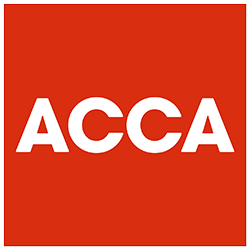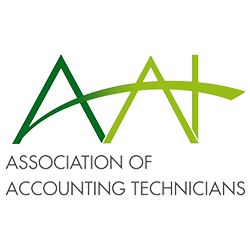Your Ultimate Guide to the Different Types of Accounting

A certified public accountant can specialise in many things, but, we often just refer to them with the blanket term “accountants.” Although all forms of accountancy involve working with financial information, many of us don’t know there are different types of accounting!
What is an accountant?
Accountants are qualified professionals who analyse and balance financial accounts of companies, small businesses or individuals.
By using accounting system accountants ensure all money transactions (both in and out) are accurate and legally approved. They analyse all financial transactions to ensure the health and longevity of a company or individual.
Things like:
- Financial plans
- Audits
- Expenditure monitoring
- Payroll
- Tax management
These are all part of an accountant’s job. They often conduct evaluation reports stating their findings from financial records to provide proof of accounts to both owners and investors.
These reports help companies make critical business decisions about the future of business operations.
Accounting career outlook
Accountants will always be in demand in Australia, and currently, the industry is estimated to grow at a steady rate for the next few years. As a career, becoming an accountant has great prospects.
Currently, 80% of accountants work full-time, and despite common belief, there is almost an even split between female and male workers, with females making up 52% of the accounting workforce.
The average salary of a fully qualified accountant is $72,511.
It’s important to note that an accountant’s salary may increase or decrease, depending on the qualification and experience they have.
What’s great about this industry is the ability to specialise and find the type of accounting that interests you the most!
Check out this guide for how to become an accountant.
Below are ten different types of accountants that you may not have known!
10 types of accountants
1. Business service accountant
This type of accountant works closely with clients, so excellent interpersonal skills are required. Business service accountants give business and tax advice to companies to ensure all tax affairs and financial accounts are in order and balanced.
Some of the duties these types of accountants take on include helping to prepare tax returns, developing business strategies to keep costs down and generating financial statements for owners and stakeholders.
2. Corporate accountant
This type of accountant works for larger companies and is in charge of ensuring all financial activity follows regulation and is legal. Giving financial is essential in this role to ensure all business accounts are correctly generated and maintained.
Most corporate accountants are company employees because of the sensitive nature of the information they’re dealing with.
3. Cost accountant
All businesses have costs, whether it be the costs of services, products, labour etc. Cost accountants are the people who manage these costs.
The financial transactions that occur within a business need to be accurately filed and maintained, and cost accounting involves analysing these reports. Cost accountants then come up with methods to keep expenses low and streamline the management of these expenses.
4. Financial accountant
Financial Accountants or ‘Finance Managers’ are often the leader of an accounting team at any given company.
Financial transactions are monitored and used to create financial reports and a company’s liabilities, income and expenses are all confirmed by this accountant. Financial accounting is similar to financial planning!
5. Forensic accountant
A forensic accountant works with law enforcement to uncover financial crimes such as money laundering, fraud or embezzlement.
Forensic accounting involves looking through financial reports, statements and raw data to reveal any inconsistencies that may indicate that a crime has been committed. These accountants and their expertise may also work on divorce proceedings and criminal trials.
6. Fund accountant
A fund accountant’s role within a company is a little more structured than other accountants’, as daily and weekly reports of financial activity are expected.
Fund accounting involves investment portfolios either in mutual or hedge funds; hence, you’ll find fund accountants working within a company’s fund-management area.
7. Tax accountant
As you may have already guessed, tax accountants are specialists in all things taxation. Audits, financial reports, tax returns (both personal and corporate) are all parts of tax accounting. Tax accountants can be asked for tax advice, clarification on tax laws, and for assistance in filing tax return forms correctly.
8. Mining accountant
As you may have already guessed, tax accountants are specialists in all things taxation. Audits, financial reports, tax returns (both personal and corporate) are all parts of tax accounting. Tax accountants can be asked for tax advice, clarification on tax laws, and for assistance in filing tax return forms correctly.
9. Management accountant
Thorough, well-planned financial reports are critical for most companies. Management accounting involves generating these reports and giving them to owners, stakeholders and investors to indicate company performance. Not only do these reports show the current health of the company, but also offers future predictions.
These predictions provide accountants with the necessary material to give financial advice, to maximise company profit while still following all legal regulations. Management accountants are responsible for the generation of these reports!
10. Project accountant
Instead of working for specific businesses, project accountants work on specific short-term projects. These accountants are hired on for extra support surrounding a project to ensure there is thorough monitoring of its financial position.
How Do I Get Started?
It’s important to note that most certified accountants have completed a Bachelor’s Degree in accounting or finance (around 59%), with another 24.7% going on to complete a Post Graduate Accounting Degree.
It is possible; however, to build upon your accounting knowledge and gain entry into the industry with a short-course qualification such as a Diploma, Certificate or Pathway Program!
These courses can specialise in particular skills within accounting such as Payroll or Bookkeeping, while some are tailored towards working for a specific program/company.
Either way, these are a great option to either brush up on your accounting skills for personal use or to get your foot in the door to become an accountant.
Browse Results
MYOB Diploma
Gain a recognised certificate in MYOB and become an expert! There are three accredited courses which make up the this accredited online Advanced Certificate: Certificate in MYOB Essentials and official MYOB Certification. Each qualification builds on t…


Certificate in Taxation
Big skillset? Great mindset! Understanding taxation for your small to medium business or as an employee of someone else’s company is a great way to arm yourself for success. Completing The Career Academy taxation course online while you work – or build…

Certificate in MYOB Payroll
Keep things rolling in the right direction Choose The Career Academy MYOB Payroll course to learn about installing MYOB Payroll NZ-wide. Discover useful shortcut keys and how to utilise the three command centres in MYOB Payroll to effectively manage yo…


Certificate in MYOB Essentials
Get where you want to go – start with the essentials Working towards goals begins with getting the fundamentals right. With MYOB Essentials, you gain a grasp of basic accounting software that can make a big difference to your business – or help you get…


Certificate in MYOB Business Payroll
Keep things rolling in the right direction Choose The Career Academy MYOB Payroll course to learn about installing MYOB Payroll NZ-wide. Discover useful shortcut keys and how to utilise the three command centres in MYOB Payroll to effectively manage yo…


Certificate in Accounts Payable and Receivable
Learn how to do accounts payable and receivable like a professional The Career Academy Certificate in Accounts Payable and Receivable offers students an excellent learning and professional development opportunity. Learn how to approach accounts payable…

Certificate in Accounts Administration & Payroll
Get a qualification to match your experience Take hold of your future with a Certificate in Accounts Administration & Payroll. Whether you are looking for the perfect position or need more tools for your current job, this industry and employer-reco…

ACCA Qualified Pathway
Advanced your career and become a member of the Association of Chartered Certified Accountants (ACCA). This program is your gateway to a successful career in accounting and finance. Unique to The Career Academy, this program is designed for ambitious i…


Accounts Administration & Payroll Pathway
You’re well on the road to success once you have this course under your belt. You’ll become a professional accounts administrator where you’ll learn how to balance the books and prepare GST returns and business accounts before using the prestigious AAT…

Diploma in Xero & Diploma in MYOB Package
Start at Xero and accelerate your career prospects With MYOB and Xero Certification under your belt as part of the Diploma in Xero & Diploma in MYOB Package you can hit job interviews with highly marketable skills. Show your boss how much you deser…


Diploma in Excel & Diploma in MYOB Package
Get two professional qualifications and become an MYOB & Excel expert! This course combines the Diploma in MYOB Package and the Diploma in Excel Package. It will provide you with comprehensive and workforce ready Excel and MYOB skills required for…


Diploma in Excel & Diploma in Xero Package
Get two industry-recognised qualifications and become a Xero & Excel expert! This package combines the Diploma in Xero and the Diploma in Excel. It will give you a comprehensive and workforce ready understanding of both Excel and Xero, giving you e…


Accounting Diploma
Once you qualify, your job prospects will soar. If you’re eager to enhance your accounting skills, and pursue a career in accounting, finance or business, then this course is a must. It’s an advanced qualification that builds on the practical accountin…


Accounting Technician Pathway for Bookkeepers
How to advance your Bookkeeping career in more ways than one. Want to advance your Bookkeeping career and earn more? Well, this is how you go about it: AAT Accounting Technician Pathway for Bookkeepers. Sharpen those bookkeeping skills needed to progre…


AAT Accounting Pathway Program
How to get your accounting career really moving. This is the program for those who love to take bold steps to champion their career. It’s unique to The Career Academy and specially designed for those working, or who have worked in an entry through to i…


AAT Qualified Bookkeeper Pathway
Become a professional AAT Qualified Bookkeeper with our AAT Pathway for Bookkeepers and fast track your bookkeeping career! Learn to balance the books, prepare GST returns and prepare business accounts, before using the prestigious AAT membership to la…


Diploma in Xero
Gain an advanced workforce-ready skillset in Xero. It’s one of the most highly awarded Xero courses that you could take. The Diploma in Xero for accountancy, bookkeeping and administration roles is loaded with specially rated achievements. These includ…


Industry Accredited Diploma in MYOB
There are three accredited courses which make up the this accredited online course: Certificate in MYOB AccountRight, Certificate in MYOB Essentials and Certificate in MYOB Payroll. Each qualification builds on the knowledge learned previously and cour…


Introduction to Bookkeeping
Ready, set, learn! Understand bookkeeping basics 101, like the types and structures of businesses, what external factors may influence a business, how to calculate GST, and how to use financial statements to understand and convey your position. Become…

Bookkeeping Business Pathway
Launch your bookkeeping business with the option to freelance, subcontract or start your own bookkeeping business. Complete our Certificate in Bookkeeping and then our Start your Own Business Program….



